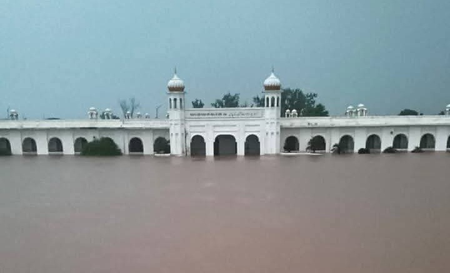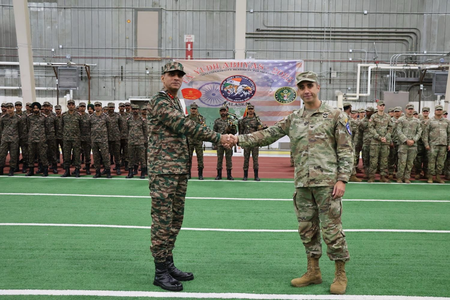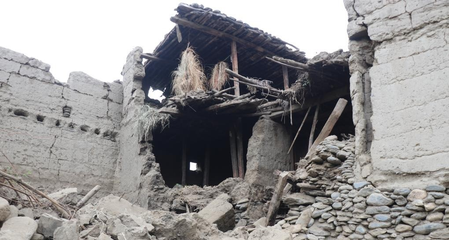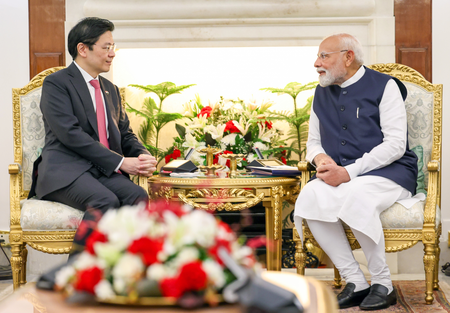
Islamabad, Sep 4 (IANS) Lack of coordinated flood management and resilient infrastructure has resulted in the historic Kartarpur Sahib Gurudwara complex in Pakistan getting inundated due to torrential monsoon rains and rising water level in River Ravi.
The shrine remains closed as unprecedented flooding has submerged both the complex and the 4.5-km-long visa-free passage connecting India and Pakistan, severely restricting access for Sikh pilgrims, while disrupting a vital symbol of cross-border religious harmony.
The development, a Khalsa Vox report stated, has exposed both the vulnerability of critical infrastructure and the risks posed by increasingly unpredictable weather conditions in South Asia.
“Floodwaters reached up to 10-12 feet in the Kartarpur Sahib Gurudwara complex, submerging ground floors, sanctums, and access routes, leaving over a hundred Sikh pilgrims and officials temporarily stranded before they were rescued by boats and helicopters. The closure leaves thousands of Sikh devotees unable to visit Guru Nanak’s final resting place, a site of immense religious, emotional, and diplomatic significance,” the report detailed.
“Volunteers safeguarded sacred items and moved the Guru Granth Sahib to higher floors during the flood. For the Sikh community globally, the suspension of pilgrimages underscores how environmental crisis can abruptly sever spiritual and cultural connections that transcend political boundaries,” it added.
According to the report, ensuring the corridor’s long-term sustainability requires that restoration extend beyond immediate fixes, focusing on coordinated flood management, resilient infrastructure, and robust cross-border cooperation.
The recent disaster, it said, underscored that the Kartarpur Corridor must be safeguarded against both geopolitical tensions and growing environmental risks that could erase years of dialogue in an instant.
“At a time when hope is often hostage to politics, the submerged Kartarpur Corridor reminds us that faith, humanity, and the forces of nature all share the power to both divide and unite. Ensuring the corridor’s resilience will require both nations to treat it as more than a diplomatic token, but as a living bridge—historically, spiritually, and ecologically,” the report noted.
–IANS
scor/as




